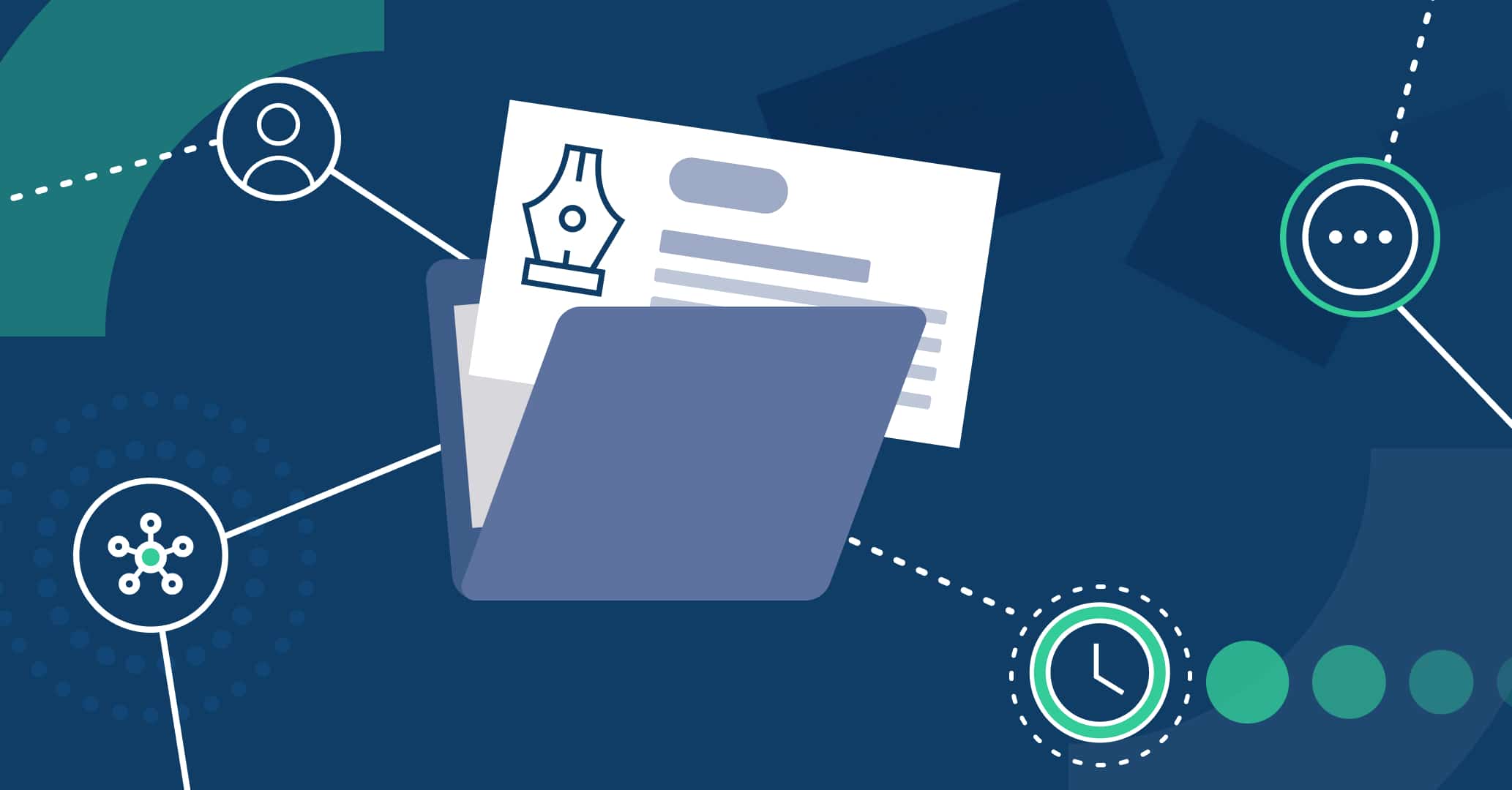The agenda of business-process improvements and the use of next-generation tools is growing with the technological boost. It goes beyond traditional automation and involves integrating cognitive technologies for smarter processes. One word sums it all up: Intelligent Process Automation (IPA).
Intelligent Process Automation (IPA) combines technologies/techniques like Artificial Intelligence, Robotic Process Automation (RPA), and others to automate processes. Platforms like Qflow allow businesses to use IPA and strategically design and automate processes.
In this guide, we will uncover everything about intelligent process automation. You will learn:
- What is Intelligent Process Automation (IPA)?
- What are its components?
- Benefits of IPA
- How to apply it to a business?
- Challenges and opportunities
- What will the future of business processes look like?
What is Intelligent Process Automation (IPA)?
Intelligent Process Automation (IPA) refers to the application of artificial intelligence, machine learning, robotic process automation (RPA), computer vision, and other new technologies/techniques to automate business processes.
The convergence of technologies leads to “intelligent” process automation, where all these technologies work together to streamline and improve business processes. This helps automate processes that otherwise require human intelligence, such as data extraction, analysis, decision-making, and others.
IPA is meant to assist humans in performing routine and repetitive tasks. In addition to automating, it also learns and improves process flow over time. Simply put, IPA is an advanced way of automating processes using a combination of the latest technologies and techniques, especially the intersection of artificial intelligence and cognitive technologies.
What are its components?
Intelligent process automation (IPA) uses various technologies to fulfill the desired functionality. However, the five key components of IPA are as follows:
1. Artificial Intelligence
Think of artificial intelligence as the brain in IPA. It gives software the ability to perform what requires human intelligence, such as understanding context, personalizing responses, and making decisions. For example, AI in customer service tools helps with personalization, sentiment analysis, and other factors.
In intelligent process automation (IPA), AI uses three main techniques:
- Machine Learning (ML): It involves algorithms that learn from the provided data.
- Natural Language Processing (NLP): It’s the system’s ability to interpret and output in human language.
- Optical Character Recognition (OCR): It involves recognizing text from images, documents, and other files.
All these techniques give IPA the brain to perform more advanced and automated tasks.
2. Robotic Process Automation
Robotic process automation (RPA) is a rule-based task handler that can perform repetitive tasks, such as data entry, order processing, and form filling.
RPA follows predefined rules while executing tasks. It cannot make decisions or learn from interactions. Rather, it automates repetitive tasks. That’s why RPA is used with AI in intelligent process automation.
3. Business Process Management
Business process management (BPM) is a structured approach to improving business processes. It involves methods for identifying, designing, implementing, measuring, improving, and optimizing business processes.
In intelligent business process automation, BPM helps to identify and remove inefficiencies in processes. It can also map workflows, monitor performance, and help optimize efficiency over time.
4. Automation Tools
IPA involves many automation tools that help automate various processes. Often, these tools fulfill specific tasks, like enabling communications, automating common tasks, streamlining data sharing, and more.
5. Data
The last and key component of IPA is data. IPA uses data to train systems and generate relevant responses. For example, historical customer data helps AI systems personalize interactions. It also uses data to continuously learn and improve performance.
Benefits of IPA
Intelligent process automation can bring many benefits to businesses of all sizes and sectors. Some of the main benefits are:
Increased Efficiency
IPA reduces the time and cost of performing repetitive and tedious tasks that consume human resources and attention. By eliminating human errors and biases, IPA can also improve the quality and accuracy of the tasks.
Enhanced Productivity
IPA enables businesses to scale up their operations and handle larger volumes of work without compromising on quality or speed. It can also free human workers from mundane tasks and allow them to focus on more creative and strategic activities.
Control Operational Costs
IPA is a key to controlling operational costs. About 30% of business leaders report a reduction in labor costs due to process automation. When automating business processes manual processing is reduced and less manpower is required, businesses can save significant operational costs.
Improved Customer Satisfaction
IPA improves customer satisfaction by providing faster and more personalized services that meet their expectations and needs. By creating positive interactions and experiences, IPA can also increase customer loyalty and retention.
Competitive Advantage
IPA gives businesses a competitive edge by enabling them to innovate and adapt to changing market conditions and customer demands. It can also help businesses gain new insights and opportunities from their data and processes.
How to apply it to a business?
Implementing intelligent process automation (IPA) is not rocket science. It requires knowing what processes to automate, what technologies to use, and how to configure them.
The typical steps of applying IPA to a business are as follows:
- Identify the processes to automate.
- Determine the technologies and tools needed to automate those processes.
- Create automated workflows using a reliable tool like Qflow Design, which leverages BPMN notation to design and automate your workflows.
- Deploy the automated processes.
- Regularly monitor and update processes.
This way, businesses can apply IPA to their existing processes.
Example Implementation Case
OCA was looking for a system that could integrate with its already implemented external processes, offering high response availability and data recovery capabilities in case of system failures. Furthermore, as a financial services company, security was of paramount importance, requiring a confidentiality and permissions system to safeguard the organization’s and its clients’ data.
To optimize OCA’s process management, Qflow implemented an IPA that automates the entirety of its processes, from task initiation and response to workflow maintenance, saving significant time and reducing errors.
Costs
When applying IPA to process management, an organization must consider certain fixed costs associated with its implementation. While the costs of Intelligent Process Automation will vary depending on factors such as process complexity or the tools chosen, investments are typically required in the following areas:
Software licenses and maintenance: Costs depend on the provider, the number of licenses, and the support package selected.
Qflow Cloud offers licensing plans starting at $11 USD per user per month, with lower per-user costs as the number of active users increases.
Hardware and infrastructure: Costs vary based on the scale and security requirements of the processes and include investments in servers, storage, networks, and cloud services.
Implementation and integration: Depending on the desired customization and complexity, this covers expenses related to design, development, testing, and integration with existing systems.
Change management and training: These are resources allocated to adapt the organization to IPA, including training, communication of benefits, and goal setting, among others. The company’s level of preparedness will directly influence the final investment cost in this area.
Challenges and Opportunities
Intelligent process automation has challenges and opportunities that businesses must tackle strategically.
Challenges of IPA
Resistance to Change
IPA introduces several new technologies to the workplace, which naturally leads to resistance to change. Employees may not understand the benefits, feel hesitant to change their workflows, or fear that automation will replace their jobs.
Complexity
IPA involves using multiple technologies and systems that must be integrated and coordinated. It also requires expertise and knowledge to design, implement, maintain, and improve automation solutions.
Security
IPA can pose potential security risks as it involves sensitive data and processes that need to be protected from unauthorized access or manipulation. It also requires compliance with various regulations and standards that govern data privacy and security.
Ethics
The use of IPA raises ethical questions, as it impacts human workers and customers in various ways. It may affect the employment status, skills, roles, responsibilities, and well-being of human workers. It may also affect the trust, consent, fairness, transparency, accountability, and responsibility of customers.
Opportunities with IPA
Automate Workflows
IPA is a perfect way to intelligently automate workflows with AI, RPA, and other technologies. It helps to automate time-consuming workflows based on set triggers and saves significant time and resources.
Process Standardization
IPA provides the opportunity to standardize processes and ensure that tasks are executed consistently across the organization. By using predefined rules or triggers, process execution becomes more efficient, with reduced errors and variability.
Drive Innovation
IPA provides a way to drive innovation in business workflows. Businesses can think out of the box, use data and analytics, and leverage emerging technologies to automate and optimize processes. For example, a business may automate customer data entry, but intelligent automation also helps identify customer trends and other insights.
Better Scalability
IPA makes it easy to scale operations due to changing demands. Automated processes can easily handle increased workloads without asking for additional resources. This gives businesses the opportunity to accelerate growth strategies.
Support Customers
IPA provides a way to optimize customer support. For example, an AI chatbot can respond to customer queries and even solve common ones autonomously. Moreover, the chatbot can provide personalized responses, which enhances satisfaction and fosters loyalty.
What will the future of business processes look like?
Intelligent Process Automation (IPA) is revolutionizing business processes, as they are not just getting automated but also intelligent. As IPA becomes more mainstream, we will see more automated processes where the systems learn and adapt based on data. This will have two major benefits.
First, it will be a game-changer in industries like finance and retail to automate complex tasks, like fraud detection and inventory optimization. Secondly, it will enhance customer experiences with personalization and proactive services.
Overall, the future of business processes with IPA looks more automated, intelligent, and adaptive to meet the changing customer needs and market dynamics.






